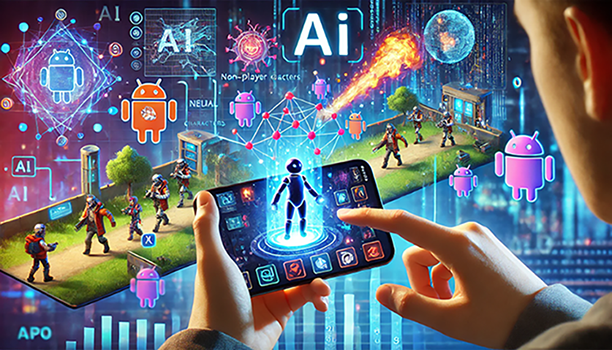Adaptive Gameplay
AI algorithms analyze player behavior and adapt the game’s difficulty level in real-time. This ensures that casual gamers are not overwhelmed, while seasoned players remain challenged. Adaptive AI tailors game difficulty based on the player’s skill level, providing a balanced and enjoyable experience for everyone.
Personalized Experiences
AI-driven personalization in mobile games involves customizing content based on player preferences and behavior. This can include personalized game recommendations, tailored in-game events, and custom character or environment designs. By understanding player preferences, AI creates a more immersive and enjoyable gaming experience.
Advanced NPC Behavior
Non-Player Characters (NPCs) are becoming more intelligent and lifelike thanks to AI. NPCs can now learn from player interactions, exhibit realistic behaviors, and respond dynamically to the player's actions. This makes the game world more believable and engaging, as NPCs act in ways that mimic human behavior.
Enhanced Graphics and Animations
AI is used to enhance the visual quality of mobile games. Techniques such as neural networks and deep learning improve graphics, textures, and animations. AI can upscale lower resolution images to higher resolutions, create realistic character animations, and generate detailed environments, making the gaming experience more visually appealing.
Procedural Content Generation
AI algorithms generate game content procedurally, ensuring a unique experience for each player. This includes generating levels, quests, and environments that adapt to the player’s progress and preferences. Procedural generation keeps the game fresh and replayable, as players encounter new challenges and environments each time they play.
Intelligent Voice Assistants
Voice assistants powered by AI provide hands-free control and enhanced accessibility in mobile games. Players can use voice commands to navigate menus, control characters, or perform actions within the game. AI-driven voice recognition improves the accuracy and responsiveness of these commands, enhancing the overall gameplay experience.
Real-time Analytics and Feedback
AI-driven analytics collect and analyze player data in real-time. This allows developers to understand player behavior, preferences, and pain points. By leveraging this data, developers can make informed decisions to improve game design, fix issues, and introduce new features that resonate with players.
Enhanced Virtual Reality (VR) and Augmented Reality (AR) Experiences
AI is instrumental in creating immersive VR and AR mobile games. AI algorithms track player movements, predict actions, and render environments in real-time, ensuring a seamless and immersive experience. AI enhances the interactivity and realism of VR and AR games, making them more engaging and enjoyable.
Improved In-game Customer Support
AI-powered chatbots and virtual assistants provide instant support to players within the game. These AI systems can answer questions, provide hints, and help with technical issues. By offering real-time assistance, AI improves player satisfaction and keeps them engaged in the game.
Behavior Prediction and Cheating Prevention
AI monitors player behavior to detect cheating and unusual activities. By analyzing patterns and anomalies, AI can identify and prevent cheating, ensuring a fair and enjoyable gaming experience for all players. Additionally, AI can predict player behavior to anticipate their needs and preferences, further personalizing the gaming experience.




Comments (0)